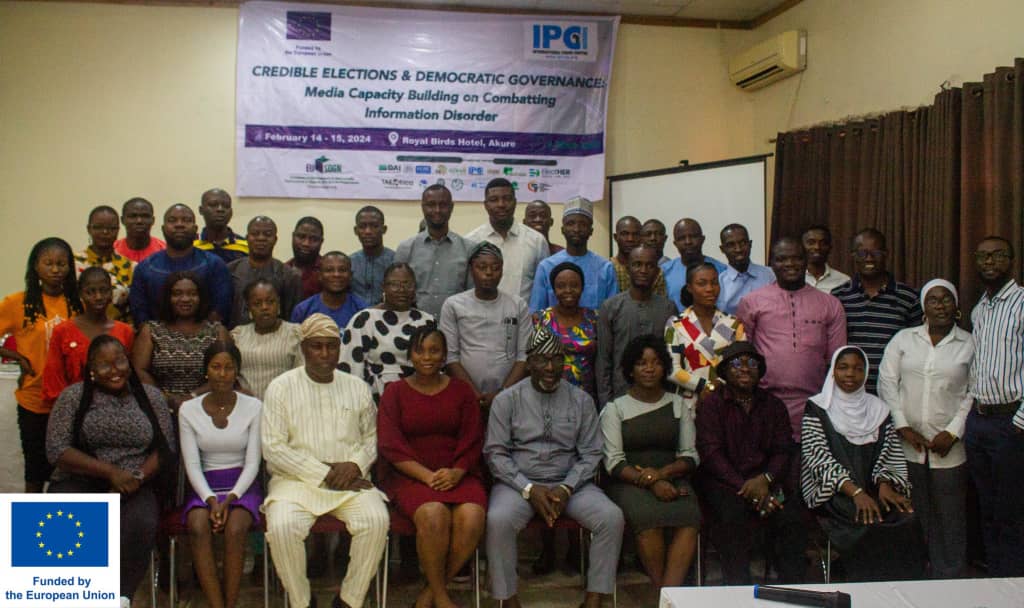IPC trains S’West journalists in combating information disorder
The International Press Centre (IPC) has trained 41 journalists drawn from South West states in combating information disorder using fact-checking tools. The training tagged “Two-day capacity building on combating information disorder in Democratic Governance Reporting using fact-checking and FoI tools”, took place in Akure, Ondo State. It was organised by IPC in collaboration with EU-Support […]

img 20240216 wa0045
The International Press Centre (IPC) has trained 41 journalists drawn from South West states in combating information disorder using fact-checking tools.
The training tagged “Two-day capacity building on combating information disorder in Democratic Governance Reporting using fact-checking and FoI tools”, took place in Akure, Ondo State. It was organised by IPC in collaboration with EU-Support to Democratic Governance in Nigeria (EU-SDGNll).
The workshop had Lanre Arogundade, the Executive Director of IPC, and Martins Oloja, Managing Director and Editor in Chief, of The Guardian, as facilitators.
IPC’s Programme Manager, Melody Akinjiyan, said the training was organised with the aim of equipping journalists with “the necessary tools, skills, and knowledge to navigate the complexities of the digital age responsibly and ethically.”
She added that “By fostering a culture of critical thinking, fact-checking, and media literacy, we will strive to empower journalists to serve as guardians of truth, champions of integrity, and defenders of democracy.”
Akinjiyan said the training will also take place in other geo-political zones of the country.
Arogundade insisted that journalists have a critical role to play in ensuring the credibility of elections and strengthening democratic processes.
“The major objectives of the training first is to ensure that we report elections and electoral processes factually, and accurately and ensure that we fact-check the necessary information.
“The second objective of the training is that after elections we need to hold our leaders accountable and therefore, we have to look at those campaign promises, assess their state of implementation, not just from the view of the government but from the view of the people and what we ourselves are able to verify because we believe that by doing that we can help our people to solve some of their problems,” he said.
